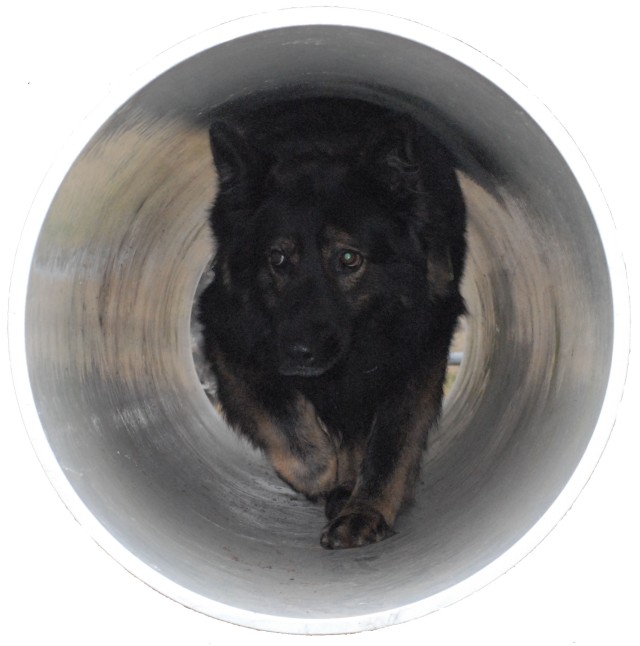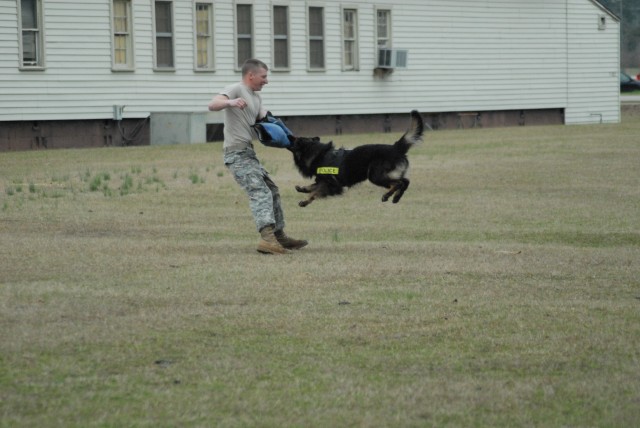FORT JACKSON, S.C. (Jan. 28, 2009) -- Sit, stay and fetch are often the first commands a dog learns; for the Fort Jackson military working dogs and the specialized search dogs these commands are "puppies' play."
For Guera, Gurda, Gury and Blecky, four of the eight working dogs at Fort Jackson, sniffing out explosives and narcotics is just another day at the office.
Fort Jackson's K-9 Unit's primary responsibility is public safety, according to Sgt. 1st Class Curtis Thomas, military working dog section kennel master. The unit also supports off-post facilities and K-9 demonstrations in the community.
Gury's job here is health and welfare along with random anti-terrorism measure checks at the gate, explained his handler Spc. Michael West.
"We go to the gate at random times on random days and help with the checks," West said. "We just check to make sure no one is bringing any narcotics or anything they are not supposed to onto the base."
To hone their skills, the handlers and their dogs train daily. Training typically includes a stop at the obedience course, searching for planted explosives and narcotics in a building and practice clearing roadways.
Spc. Adam Burns, Blecky's handler, said the daily training helps the handlers work on any problems they encounter with their dog.
"When I first got here, Blecky didn't really know how to search in high areas," he said, "so we would plant a higher aid to get his nose up because he likes to keep his nose down from searching for IEDs (improvised explosive devices) and clearing roadways. It teaches them a pattern."
Blecky, who is a SSD, is trained to work off-leash.
"We work entirely off-leash to accomplish missions faster," Burns said. "We're trained to go down range and find IEDs in a quicker time than it would take a military working dog."
With tasks such as searching for explosives, handlers have to be able to put a certain level of trust in their dog.
"It's a lot of trust and leaps of faith," West said, "More so when you first start working with them and when you start training for different tasks."
According to Thomas, working dogs are considered to be equipment by the Army, but for him these dogs are far more than that.
"These are partners," he said. "They are better partners than me taking one of the guys out and being a partner."
A military working dog belongs to the post where it works and will not go with his or her handler if there is a Permanent Change of Station move. However, SSD handlers receive their dog when they arrive at training at Lackland Air Force Base, Texas, where all DoD K-9 training is done, and stay with that dog until either the dog retires or the handler leaves the Army.
Because of the close relationship established between the handler and the dog through training and working with him or her daily, the loss of a dog is hard on the whole unit.
"The longer you do this, the harder it is (to deal with a death)," Thomas said. "It doesn't even have to be my dog. It's just hard because I know what the handlers are going through (when they lose a dog). I'm getting goose-bumps right now, just from thinking about it."




Social Sharing